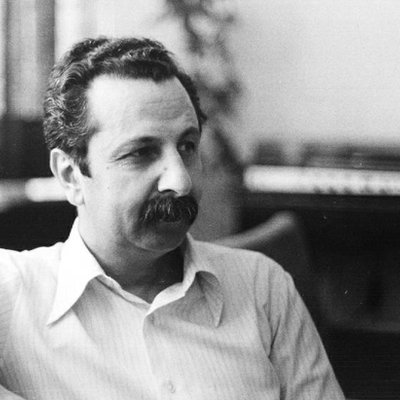
Last Update
April 25, 2021
Organisation
Unknown
Gender
Male
Ethnic Group
Persian
Religoius Group
Shia
Province
Tehran
Occupation
Artist
Sentence
Unknown
Status
In exile
Institution investigating
Ministry of Intelligence
Charges
Collaboration with anti-revolutionary groups
Siavash Kasrai In exile
Kasrai’s family moved from Isfahan to Tehran when he was a child. He enrolled in the Faculty of Law at the University of Tehran in the late 1940s, but was not allowed to defend his dissertation on the labor movement.
Siavash Kasrai’s poetic style was close to Nima Yooshi, the father of modern Persian poetry. He was among the circle of Nima Yoooshij in the 1940s. His first poem in this style was “A Poet Comes After Me” which he wrote at the age of 25.
In 1948, he became a member of the Tudeh Party, a party with leftist and communist ideas. Kasrai was imprisoned after the coup d'état of August 19, 1953, which led to the fall of the government of the prime minister Mohammad Mossadegh. He was later released.
The political controversies of those days reached the Iranian Writers 'Association in 1979 and escalated to a point that the board of directors of the association decided to expel all members of the Writers' Association who were members of the Tudeh Party. Siavash
Kasrai was among those expelled.
In the early 1980s, ideological and political disputes between Islamic Republic officials and Tudeh leaders began. The Islamic Republic began widespread arrests and torture of all Tudeh members throughout Iran and forced its members to imposed confessions on television. Kasrai went into hiding.
A few months later, in 1983, Kasrai decided to leave Iran secretly with his family. He crossed the border illegally to Kabul, the capital of Afghanistan, and worked for Zahmatkashan, Kabul’s radio station. He lived in Kabul for four years and then took refuge in the Soviet Union.
He lived in Moscow from 1987 to 1995. He resigned from Tudeh in 1990 and criticized the party. He went to Austria in 1995, but later died from heart disease, in February 1996, at the age of 68.
Siavash Kasrai is buried in the Vienna Central Cemetery in a section used for other prominent figures.
After Kasrai's death in Europe, a group of friends organized a funeral in one of Tehran's mosques, but the ceremony was attacked and disrupted by the Basij, a paramilitary volunteer militia affiliated with Islamic Revolutionary Guard.
The most famous work of Siavash Kasrai is the poem “Arash Kamangir," an epic about a heroic figure in Iranian mythology.